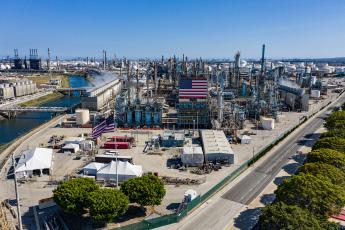The renegotiation of the North American Free Trade Agreement (NAFTA) provides an important opportunity to preserve and strengthen NAFTA’s investor protections, specifically the investor-state dispute settlement (ISDS) mechanism. ISDS protections ensure that when U.S. companies invest abroad, those investments are protected from theft, discrimination and unfair treatment that can arise when operating in foreign countries.
Unfortunately, recent negotiating talks raised the possibility of the U.S. government opting out of ISDS mechanisms altogether, or Canada and Mexico creating bilateral investor dispute mechanisms that exclude American companies from filing investment claims in either country. It’s imperative that U.S. businesses have recourse when operating abroad, and AFPM strongly urges our trade representatives to ensure these provisions are included, if not strengthened, in a modernized trade agreement.
ISDS provisions in the current agreement have helped the fuel and petrochemical industries reach new consumers and invest in foreign infrastructure, energy, and resource development projects. This access has been key to helping grow the U.S. manufacturing industry. Currently, companies are afforded basic protections already found in U.S. law, such as due process, non-discrimination and fair treatment by governments, as well as compensation for the seizure of property.
These safeguards are critical to facilitating the investment of U.S. businesses abroad, which is a good thing for our economy. In fact, U.S. companies that invest overseas are America’s largest exporters, biggest producers, largest innovators in U.S. capital expansion and highest-paying employers. In other words, by expanding operations, reaching new client bases and opening up access to unique projects and markets, these businesses are delivering real wealth back into our economy.
The inclusion of ISDS has been highly beneficial to the U.S. All told, the U.S. government has won all 18 of the related cases it has seen, while American companies have won several against the Canadian and Mexican governments, ensuring compensation against unfair practices. In other cases, the existence of neutral enforcement provisions has helped U.S. investors avoid and resolve problems with foreign governments. But more can be done.
We encourage our trade representatives to look for ways to modernize provisions to:
- Ensure intellectual property is fully protected;
- Guarantee all sectors are protected equally;
- Improve U.S. investment access in Canada and Mexico by safeguarding against discrimination;
- Expand access to ISDS enforcement for contract breaches; and
- Extend the enforcement period to at least 10 years after any potential end of NAFTA.
These measures would further support the growth of U.S. industries, including those of fuel and petrochemical manufacturers, and help drive the investment that has been so pivotal to the rise of enhanced North American energy security.


